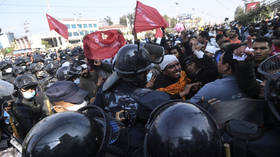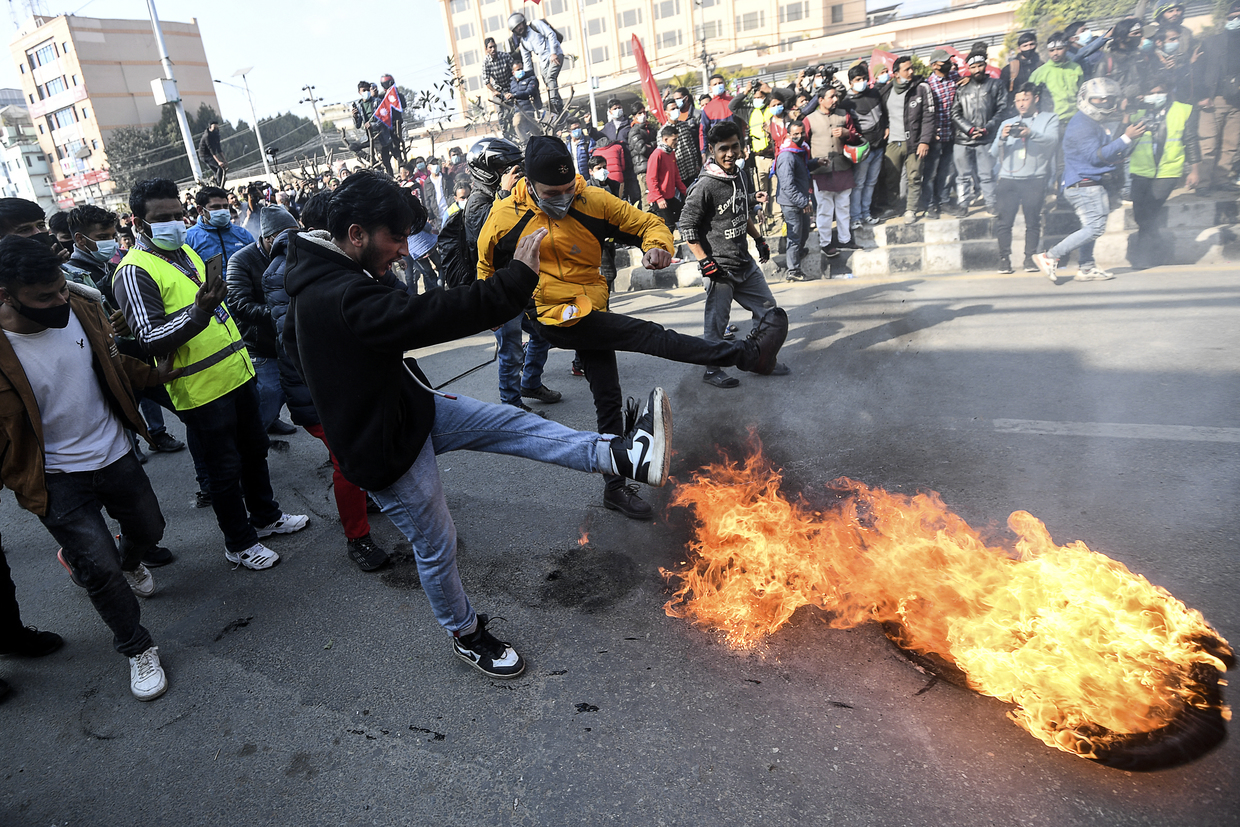Violent protest erupts over US grant in China’s backyard

Police in Nepal used tear gas and water cannons on protesters who demonstrated on Sunday against a controversial government plan to get $500 million in assistance from the US. Critics see it as a kind of trojan horse that would be used to drag the small Himalayan nation into Washington’s great power competition with China.
The rioting in Nepal’s capital, Kathmandu, took place after the government submitted to parliament an agreement, under which the US would invest hundreds of millions of dollars into the country’s infrastructure. The move came despite opposition by two communist parties from the five-party ruling coalition, who have long been questioning the deal. MPs opposing it chanted slogans during the session, as security guards blocked them from reaching a government minister presenting the agreement.
Amid the ruckus in the Nepal Parliament, Nepal govt tables $500 million American grant agreement Millennium Challenge Corporation (MCC) for ratification. pic.twitter.com/QrCWwjGBq4
— Sidhant Sibal (@sidhant) February 20, 2022
The clashes in Nepal happened over the so-called MCC compact, an agreement that the government signed in 2017 with the US Millennium Challenge Corporation (MCC). The MCC is a US government body that is supposed to give grants to low-income nations without pushing forward strategic US foreign policy goals.
The grant that Nepal won – the largest ever single assistance package in its history – is to go toward the construction of power lines and roads. Under its terms, it has priority over national laws where they conflict, which means the parliament needs to ratify it before it goes into force.
Opponents see it as part of the US strategy to contain China, which a visiting US official appeared to confirm in 2019. David J Ranz, who served as a US deputy assistant secretary of state at the time, told Nepal journalists that the grant was a crucial part of the US Indo-Pacific Strategy.
As the #Nepal govt. tables $500 million American grant agreement Millennium Challenge Corporation (#MCC) for ratification. #Kathmandu streets witness hours-long protest against the compact. Protesters pelted stones, security forces uses water cannon & tear gas to disperse a mob. pic.twitter.com/MOPMZ5dPcO
— Subodh Kumar (@kumarsubodh_) February 20, 2022
The notion was rejected by the Nepal government, but stirred enough controversy to put the ratification on pause. Suspicions have not subsided since, as evidenced by the strong reaction to the tabling of the deal in parliament on Sunday. Critics say it undermines Nepal’s sovereignty and may eventually lead to the US deploying troops on its territory or some other escalatory move.
Adding fuel to the fire were media reports that claimed Washington increased pressure on Kathmandu, demanding it to move forward with the ratification. Assistant Secretary Donald Lu reportedly told the country’s leadership that bilateral relationships between the two countries may be “reviewed” if the MCC deal does not go through.

Chinese Foreign Ministry spokesman Wang Wenbin commented on the reports, saying that while China welcomed economic development in Nepal, “such cooperation should … come with no political strings attached.”
We oppose coercive diplomacy and actions that pursue selfish agenda at the expense of Nepal’s sovereignty and interests.
The tensions in Nepal come weeks after the US Senate confirmed the nomination of a new CEO of the MCC. The aid body went most of the Donald Trump administration without a properly appointed leader. Alice Albright, the new person at the helm, is a former J.P. Morgan banker, who focused on emerging markets. She also was a political appointee to several positions in the Obama administration and worked as the CEO of the Global Partnership for Education, a Washington-based development fund.












